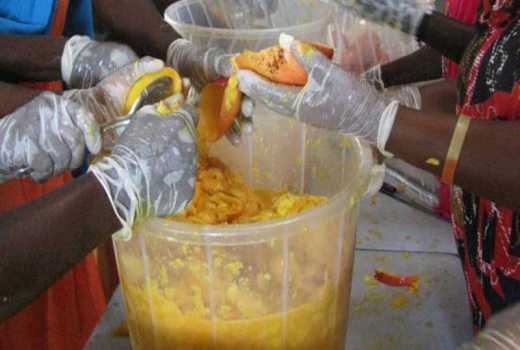×
The Standard e-Paper
Fearless, Trusted News

Tucked away on a small hill overlooking vast mango fields in Kithoni, Makueni County, is a mango processing plant that is using technology to fight post-harvest losses in the mango value chain.
The community-based facility is, perhaps, the second biggest sensation for Makueni residents in less than a year after Governor Kivutha Kibwana launched Makueni Fruit Processing Plant, the mango processing project in the county.